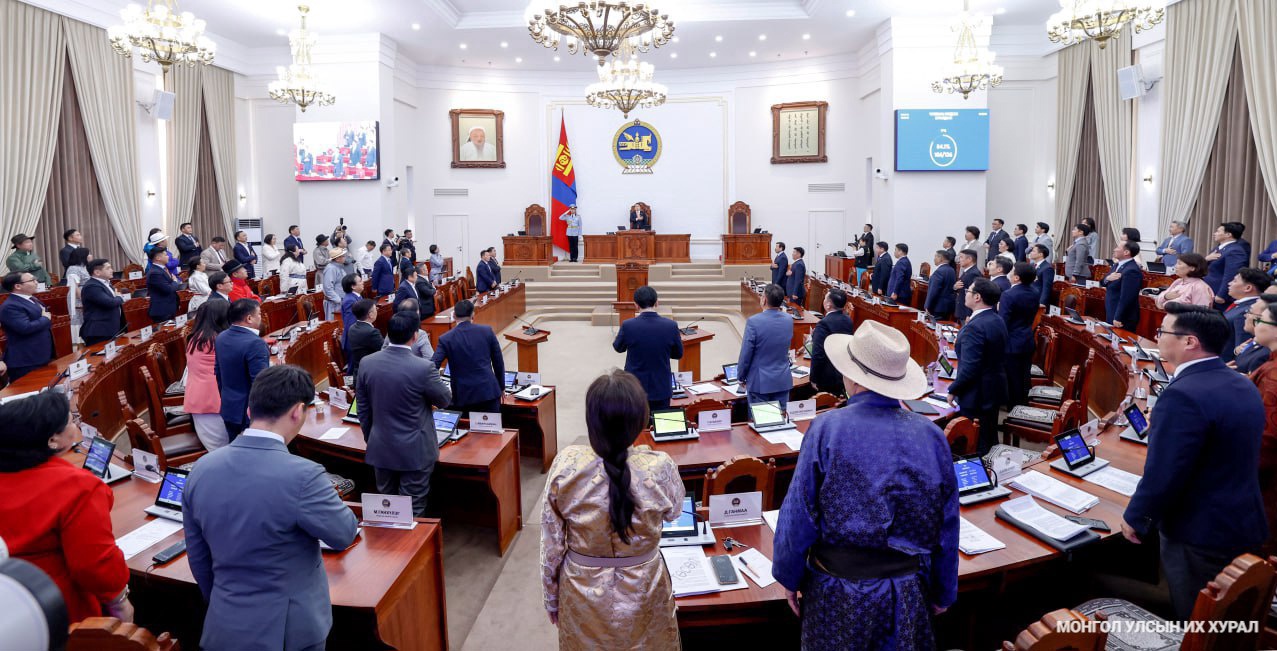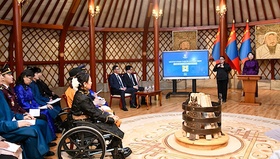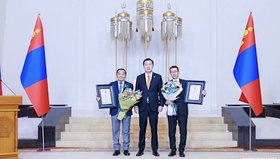In accordance with the amendments made to the Constitution, the first State Great Hural (Parliament) consisting of 126 members was formed through a mixed electoral system in the 2024 regular parliamentary elections and is now exercising its full powers.
According to the Press and Media Department of the State Great Hural (Parliament) of Mongolia, the Ninth State Great Hural, which carries the honorable duty and responsibility of strengthening the country’s democratic governance and contributing to progress in social and economic life, is distinguished by its diverse composition. In addition to including representatives from five political parties, the Parliament is composed of individuals from various sectors of society, such as lawyers, economists, engineers, teachers, and scholars.
During this regular session, the State Great Hural amended the Law on the State Great Hural of Mongolia and restructured its Standing Committees to carry out their respective mandates. The Standing Committees are tasked with preliminarily reviewing and providing opinions and conclusions on draft legislation submitted by legislative initiators, overseeing the implementation of parliamentary oversight, and drafting parliamentary resolutions on matters specified by law.
In this context, the Petitionary Standing Committee was newly established to review and analyze petitions submitted to the State Great Hural, to prepare relevant recommendations, and to address matters concerning public interest. Furthermore, the Standing Committee on Industrialization Policy and the Standing Committee on Innovation and E-Policy were merged into the Standing Committee on Economics, and the Standing Committee on Education, Culture, Science and Sports was merged with the Standing Committee on Social Policy, forming the new Standing Committee on Human Development and Social Policy. Additionally, the Standing Committee on Ethics and Parliamentary Procedures was integrated into the Standing Committee on State Structure. As a result, the State Great Hural will now operate with eight Standing Committees.
In line with these structural changes, the composition of the Standing Committees was expanded, relevant parliamentary resolutions were adopted, and certain committee chairs were elected. MP Temuulen Ganzorig was re-elected as Chair of the Standing Committee on Security and Foreign Policy, and MP Tsogtbaatar Damdin was re-elected as Chair of the Standing Committee on Justice. MP Beisen Bulan continues to serve as Chair of the Standing Committee on Environment, Food and Agriculture, and MP Seddorj Renchinbyamba continues as Chair of the Standing Committee on Economics.
MP Nominchimeg Odsuren, who was elected to Parliament for the first time, will serve as Chair of the newly established Standing Committee of Petitions. MP Naidalaa Badrakh, also a first-time MP, will serve as Chair of the Standing Committee on Human Development and Social Policy. MP Sandag-Ochir Tsendee was re-elected as Chair of the Standing Committee on State Structure, and MP Gankhuyag Khassuuri was re-elected as Chair of the Standing Committee on Budget.
Thus, beginning with this regular session, the Ninth State Great Hural will implement its legal reform policy — referred to as the “Three Pillars of Excellence” — through its eight Standing Committees. This policy aims to (1) prioritize human-centered laws that uphold human rights; (2) ensure timely legal regulation responsive to the country’s rapid social development; and (3) provide comprehensive and clear laws that distinguish between matters governed by law and those regulated by procedures.

 Eng
Eng  Монгол
Монгол


